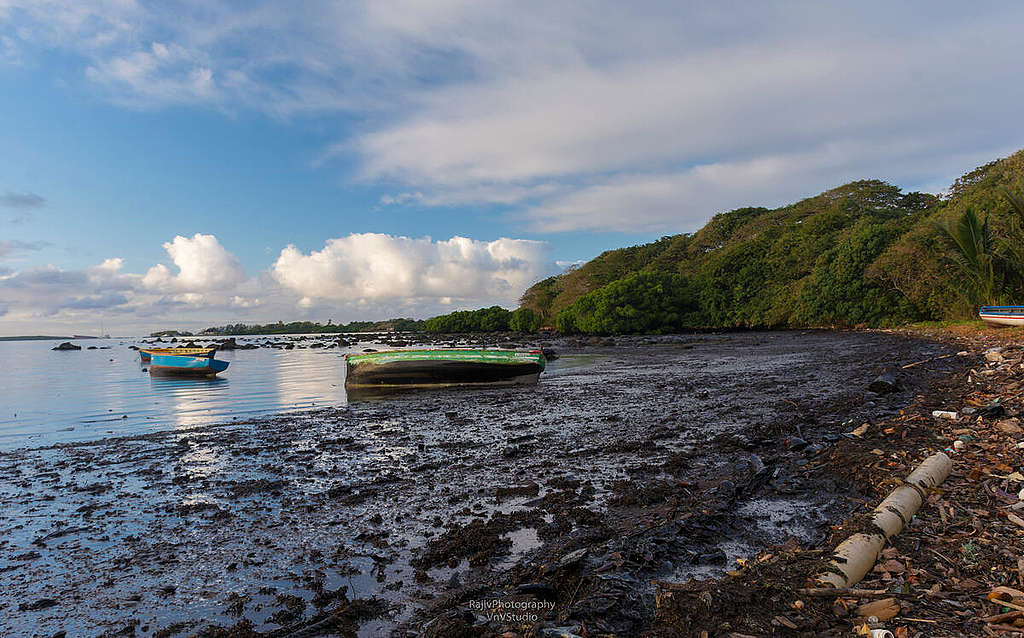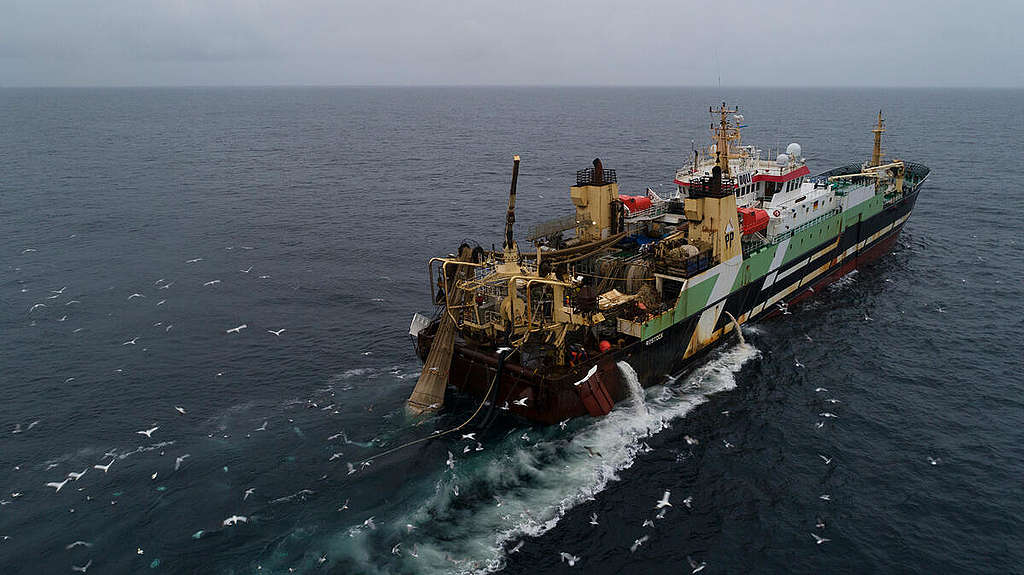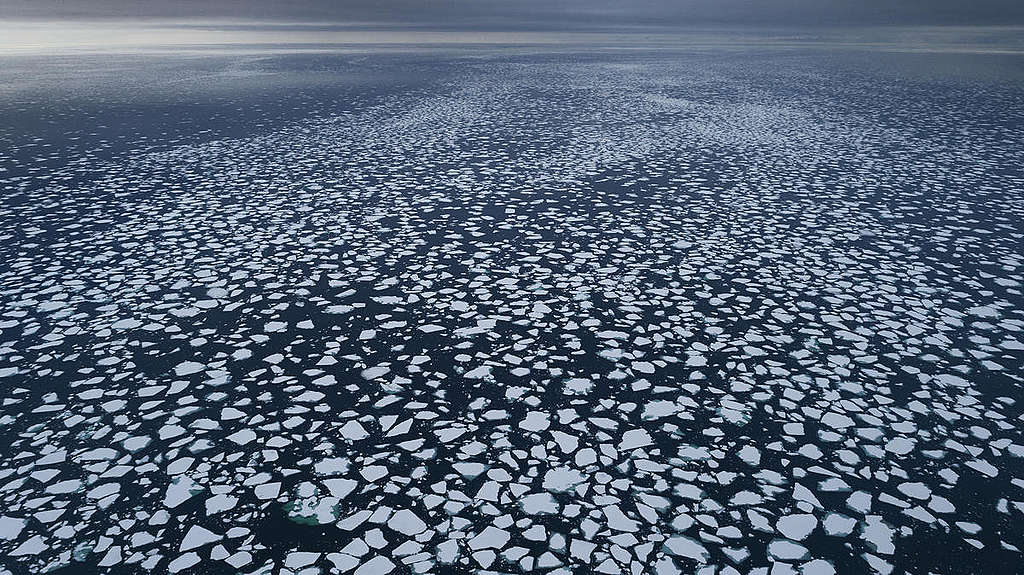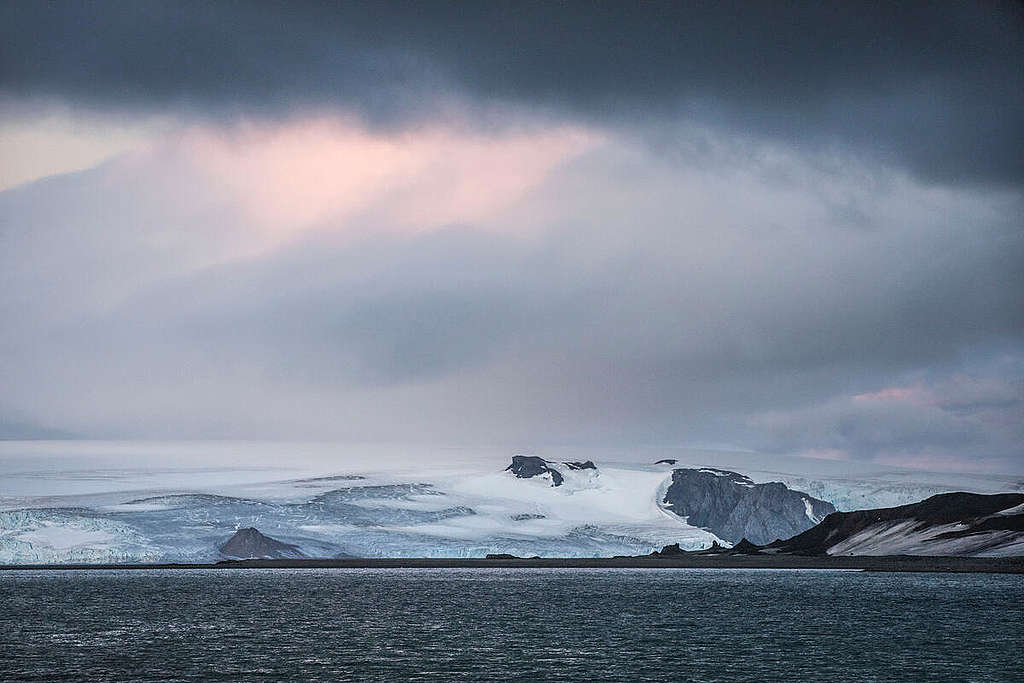In August 2020, as the world was still trying to cope with the impacts of a global pandemic, people in Mauritius were hit by a devastating oil spill on their coast. Around 1,000 tonnes of fuel oil leaked out of the ship MV Wakashio into a shallow lagoon right next to a marine reserve
, causing long-lasting consequences to the community and marine life in the area.
This is just one of the many oil spills that far too often put wildlife and local communities at risk. Such disasters should be enough of a warning to change the rules and stop ships from running on such dangerous fuels, at the very least in the most pristine and fragile corners of the planet like the Arctic. In fact, they should be enough to move the shipping sector away from fossil fuels altogether.

But the International Maritime Organization (IMO), the UN Agency responsible for preventing pollution by ships, has decided to do the exact opposite. Turning a blind eye to the climate emergency and to the call from affected communities
, IMO members are allowing the industry to continue risky business as usual.
In 2018, governments at the IMO agreed on a plan to tackle the carbon emissions from ships in line with the goals of the Paris Climate Agreement. Ships carry around 80% of world trade, using vessels that operate on fuels that are dirtier than road transport diesel fuels
. Experts estimate that international shipping accounts for about 1 billion tonnes of CO2 equivalent per year – more than twice as much as the UK’s annual emissions or almost half of Brazil’s emissions per year! That’s why cleaning the shipping industry from dirty fuels plays a key role in meeting the Paris Climate Agreement’s goals.

Instead, governments decided this week
to backtrack on their previous commitments and fail to take meaningful actionto protect the Arctic. Imagine being on board a ship heading straight towards an iceberg and the captain would decide to close their eyes and do nothing? That’s essentially what governments at the IMO are doing when they delay action hoping that the climate emergency will magically disappear.
The decisions taken at the IMO this week reveal the fundamental shortcomings of the piecemeal approach to governing our oceans. It’s time to sort out this mess of intermingling organisations, which on the surface appear to adequately govern our global oceans, but in reality undermine each other, offering governments and destructive commercial interests continual opportunities to wriggle out of meaningful commitments to reduce their climate and ocean impacts.

The shipping industry clearly does not want to self regulate in the interest of the marine environment, that’s why we need a systemic solution that puts conservation, not exploitation, at the heart of our approach to the oceans. Governments need to urgently agree to a strong Global Ocean Treaty in 2021. It’s backed by millions of us worldwide, it could provide that much-needed solution by connecting the dots, making existing organisations more accountable for their mess, and driving comprehensive ocean protection that puts people and nature before corporate interests. Until recently the shipping industry has escaped cleaning up their dirty business, but it’s past time for them to sort their ship out and move away from fossil fuels.


No comments:
Post a Comment
Note: Only a member of this blog may post a comment.